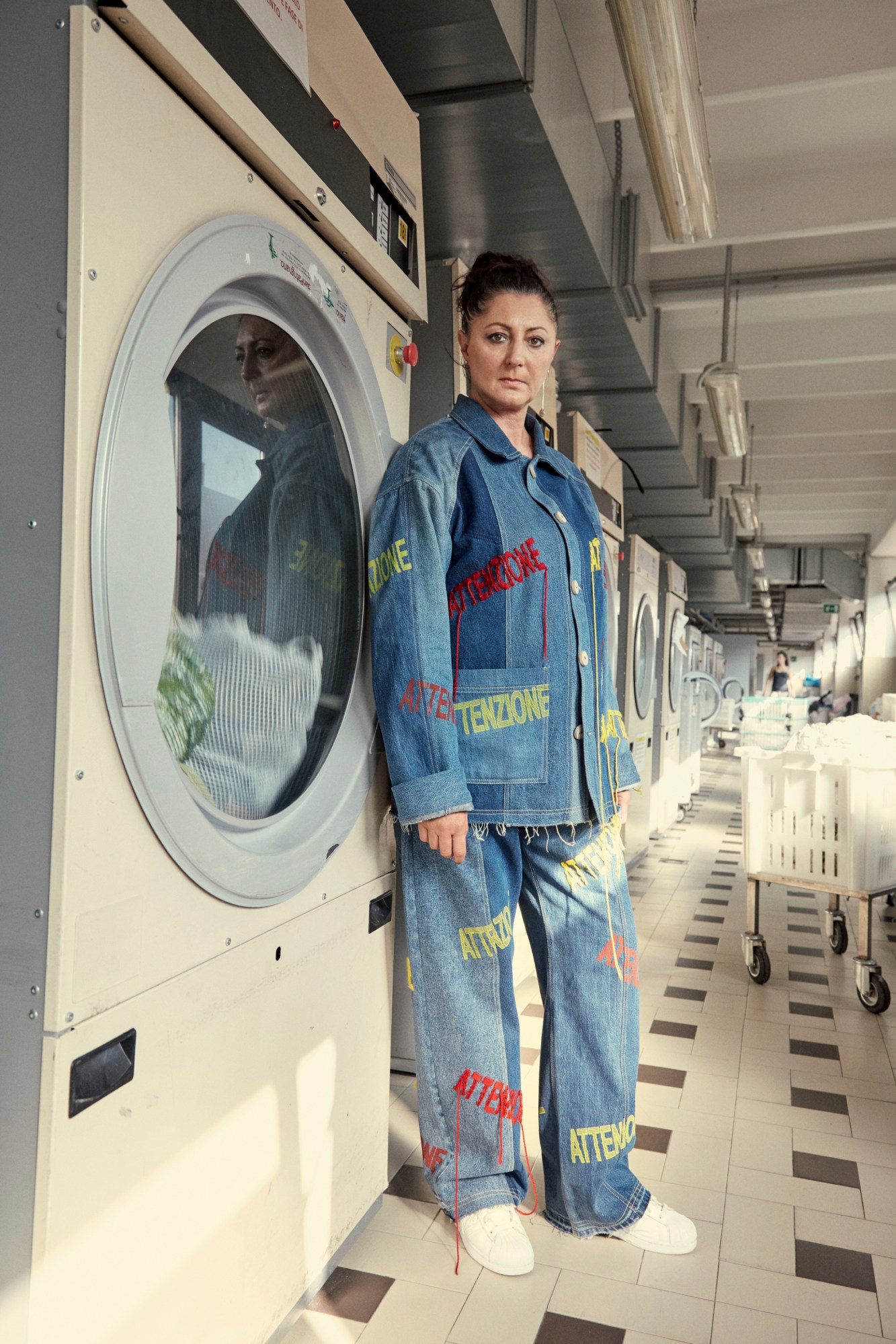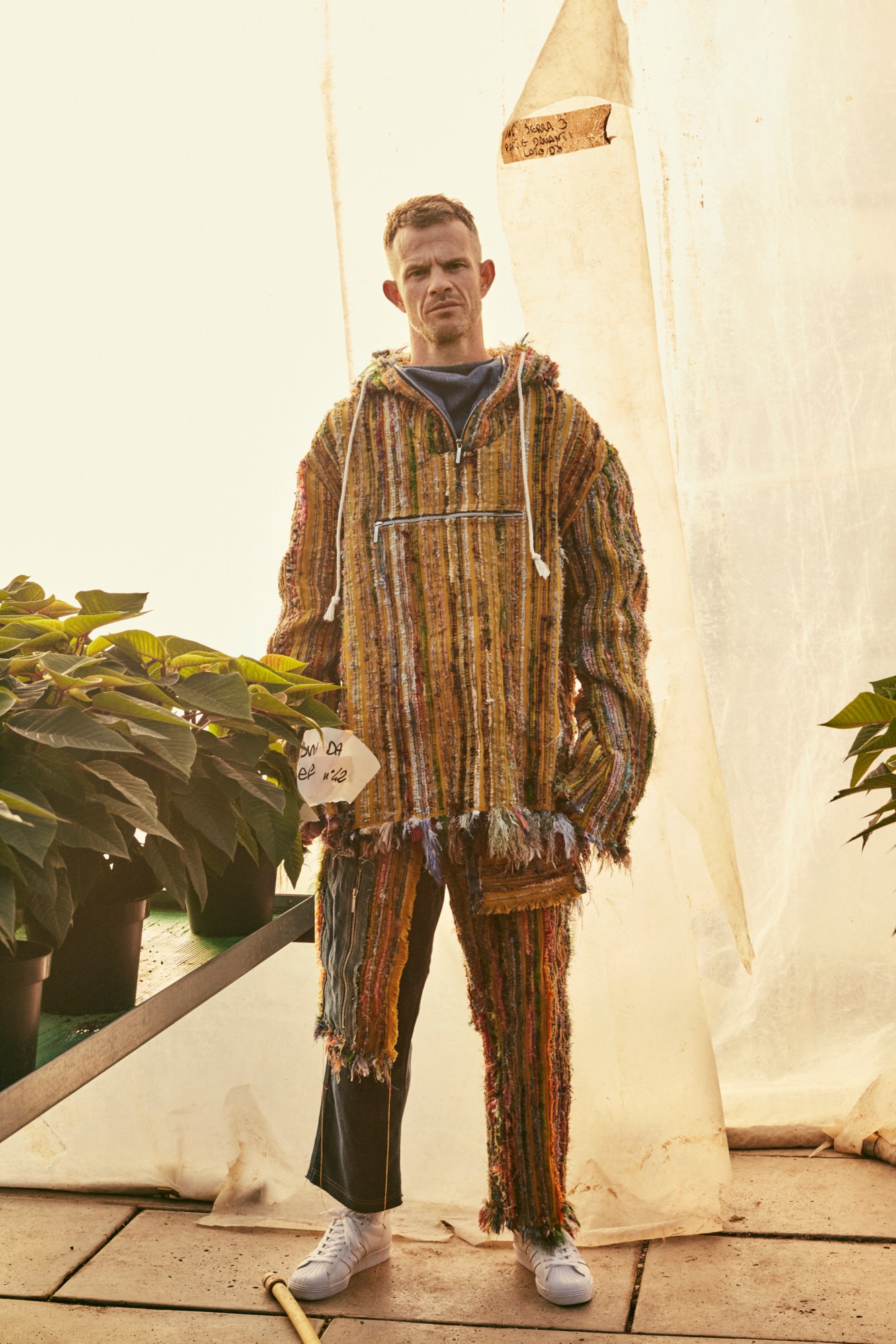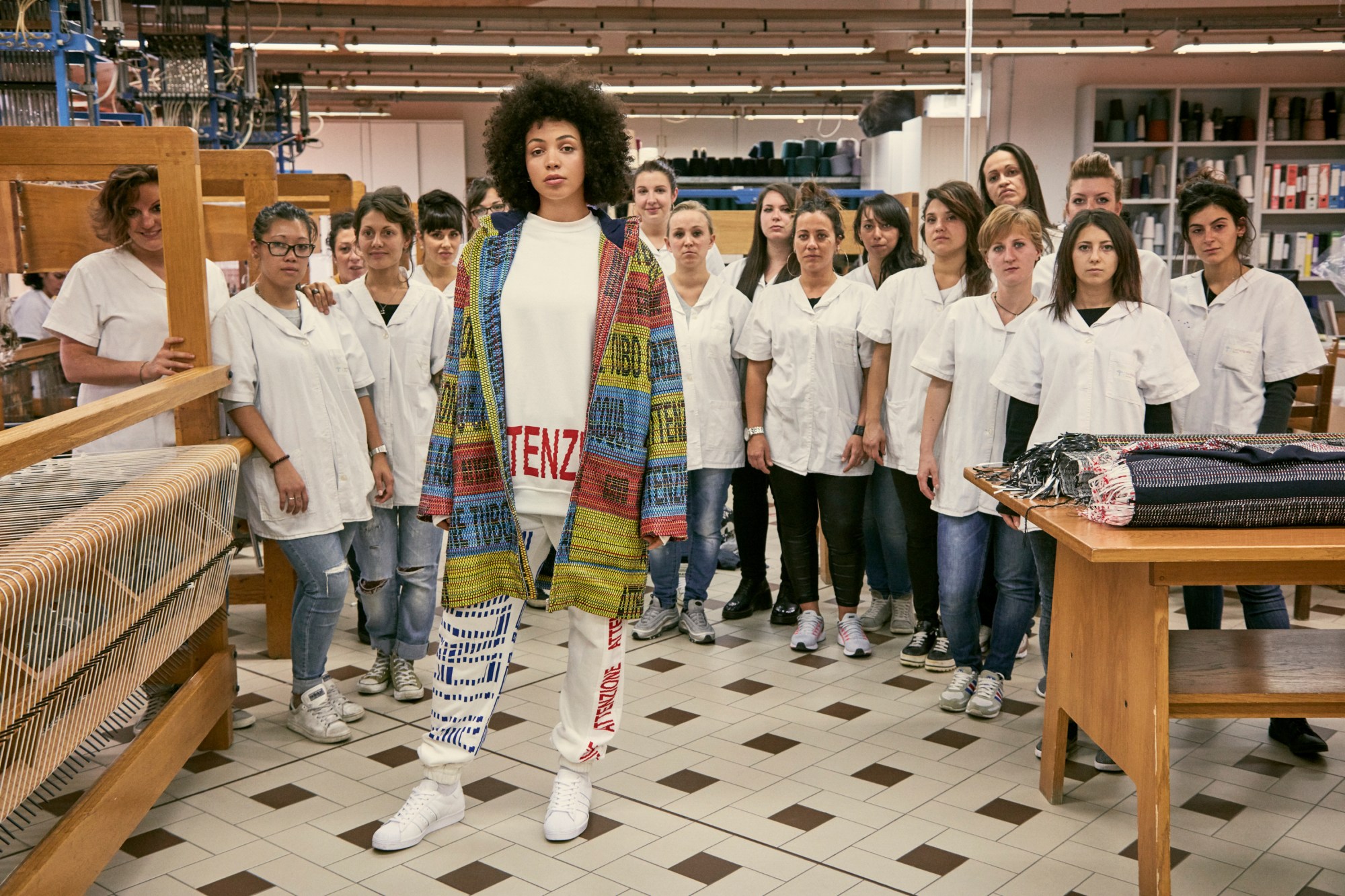At a time in which socio-politics are at the forefront of many designer’s minds, this pioneering talent isn’t just protesting bur rather offering solutions and call-to-actions. After collaborating with a Vauxhall Food Bank and a supermarket giant to explore solutions to the UK’s hidden hunger problem in her previous collection, Breadline, Bethany Williams, a London-based sustainable fashion designer, focuses our attentions onto women’s rehabilitation for spring/summer 18. In Women for Change, she has worked closely with female prisoners and the San Patrignano drug and alcohol dependency program, providing skill and meaningful employment for serving and recently released women to help reintegrate them into society
Bringing these narratives to life, Williams worked alongside London-based director Akinola Davies Jr. (aka Crack Stevens) on a film that invites viewers to meet the women of San Patrignano and London College of Fashion’s Making for Change unit in a prison in Surrey, to explore different paths to rehabilitation. The theme of the film focuses on ‘second chances’, drawing parallels between the second chance given to the discarded materials from which the designer crafted into fabrics for the collection itself and the second chances given to the women involved in both of these innovative rehabilitation programmes. Before the collection is presented at London Fashion Week Men’s, Williams shares the film exclusively with i-D and explains how her project celebrates the collective and individual strength of these communities.
It’s extremely important to create a dialogue around action rather than just talk.
I want my work to make a difference and inspire new ways of working in fashion. I initially didn’t want to go into fashion — I hated the idea of the wasteful aspects of the industry — but by working within the system and challenging the status quo I can question what fashion is and can be.
Women of Change, focuses on women’s rehabilitation, working closely with female prisoners and the San Patrignano program.
Through this collection and my work with LCF, UAL, Fondazione Zegna and San Patrignano, I was able to work with marginalised parts of society to bring about positive change and encourage social enterprise. In an interesting twist on the ongoing discourse around gender, when a man buys a piece from this collection, a proportion of the proceeds will go towards supporting some of society’s most vulnerable women. All materials sourced and created are 100% organic or recycled, even down to the buttons which are handmade in the Lake District by Jean Wildish who plants her own trees for the production of wooden buttons, and handmade in the UK and Italy.

Social and environmental issues go hand-in-hand and through exploring the connection between them, we may find innovative design solutions to sustainability.
Fashion encompasses all industries — from agriculture to communication — so it has a huge impact on the planet, producing 80 billion new garments each year and employing one in six people on the planet.
The communities that I have collaborated with through this project have inspired every aspect of the collection. It was important to see the materials and become part of the community, and their responses to my work were integral to the collection. While in San Patrignano I asked the women what change meant to them personally. Change was such an important theme for them, change is a continuous process. We asked the same questions to the women in the LCF Making for Change unit and their answers are heard in the film. It was important that we connect both of these communities through the film.

For the lookbook and campaign shoot I collaborated with TIH Models, a new modelling agency supporting youth in London affected by homelessness, casting Kris McAllister and Mustapha, both homeless and unemployed in London. Working with a modelling agency that supports homelessness is an important cause for me as I have been working with Shelter for the past 7 years outside of my design practice.
If we all work together, anything is possible!
Fashion is a global force with incredible influence — if we each use this influence for the greater good, we have a huge capacity for growth and change. We also have to safeguard our industry for the future — this was one of the great things about this project — I was able to work with first year students at LCF and help open their eyes to an alternative future — one where fashion doesn’t have to follow the rules.
